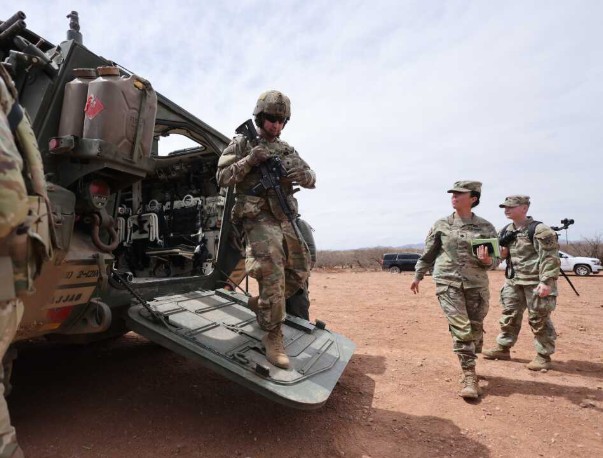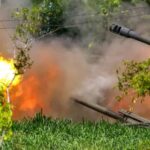Over 7,600 active-duty troops are now operating alongside civilian immigration agencies to reinforce southern border control
Under President Trump’s national emergency declaration at the southern border, the U.S. has deployed more than 7,600 active-duty troops from all service branches to assist immigration enforcement, significantly expanding the military’s domestic role.
Units are now co-located in joint command centers, sharing vehicles and responsibilities with U.S. Border Patrol, and working in newly designated militarized zones in states like Arizona. Some troops have been authorized to apprehend individuals on federal property.
The enhanced deployment includes scouts, intelligence analysts, engineers, armored Stryker vehicles, helicopters, and drones, enabling rapid response and extended surveillance along the 1,950-mile border. Marine Corps engineers have also resumed building barriers using concertina wire and structural fencing.
Context & Controversy
The expanded military presence comes amid a historic decline in illegal crossings, currently at a 60-year low. Officials attribute this decrease to the heightened troop presence, stating that deterrence is effective even if “boring.”
However, civil rights advocates and legal experts warn that this approach blurs the line under the Posse Comitatus Act, which restricts military involvement in civilian law enforcement. The administration claims legal authority under specific base-related exceptions and executive emergency powers.
In parallel, Trump’s team is reviewing whether to invoke the Insurrection Act, a law from 1807 that allows domestic troop deployment to enforce federal law in extraordinary circumstances.
Impact & Future Outlook
Officials say the operation continues due to ongoing cartel activity and seasonal migration shifts, signaling that troop presence will remain until further notice.
The Pentagon reports increased intelligence capabilities and operational flexibility under this new structure as 8,600 personnel support border security with no defined end date.
Critics argue the militarization sends a dangerous precedent, while supporters claim it reflects resolute immigration policy and border protection.



